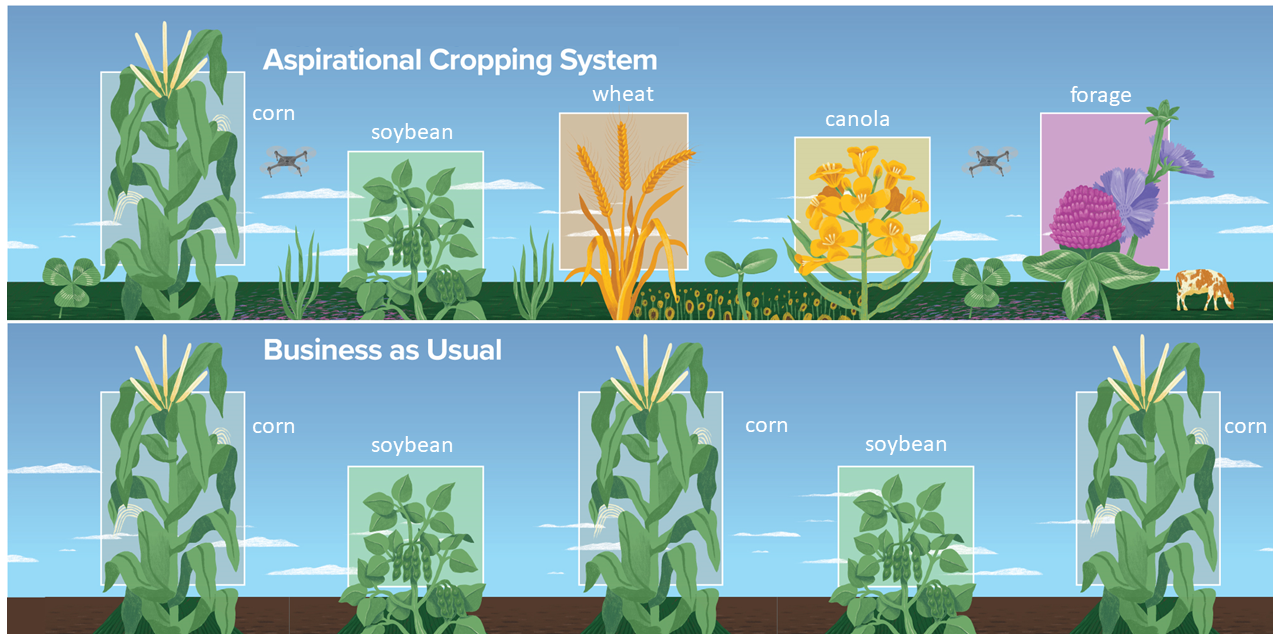The KBS Long-Term Agroecosystem Research (LTAR) is funded by the USDA and in 2020 joined a network of 18 sites across the country to develop strategies to build profitable, as well as socially and environmentally sustainable agricultural systems. KBS LTAR joins a sister program, Long-Term Ecological Research (LTER), which has been researching the environmental impact of conservation agricultural practices for over thirty years. Just in its infancy, the agricultural experiments at KBS LTAR started in 2022 and this was the first of hopefully many free, annual field days co-hosted by KBS LTAR and MSU Extension.
At the field day, LTAR director, Dr. Phil Robertson, emphasized that stakeholder engagement and aspirational, adaptive thinking are central to the project. The “Common Experiment”, which is replicated across the national LTAR network, seeks to identify trade-offs between an agricultural system that represents prevailing practices, termed “Business As Usual”, and a system that is “Aspirational” and reflects what agricultural stakeholders visioned that Michigan row crop agriculture should look like in 30 years. Dr. Tayler Ulbrich, Associate Director for Engagement, and Laura Campbell, chair of the KBS LTAR Stakeholder Advisory Board and Senior Conservation and Regulatory Relations Specialist for Michigan Farm Bureau, shared that working with external partners to ensure that the research is meaningful on-the-ground is both a unique opportunity of this project, as well as the key to success at the KBS LTAR.

Initial findings presented at the KBS LTAR showcased several key lessons and novel research areas, including: